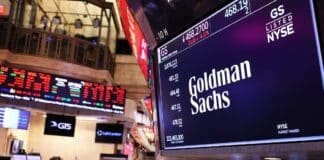In another blow to U.S.-China relations, Tesla has stopped taking new orders for its Model S and Model X vehicles in China—highlighting the escalating economic tensions between the world’s two largest economies. The move follows sharp tariff increases by both nations in an intensifying trade war.
According to Reuters, Tesla quietly suspended sales and orders of its high-end, American-made vehicles on its Chinese website, likely in direct response to Beijing’s decision to raise tariffs on U.S. imports to 125%. The move follows President Trump’s bold step to increase duties on Chinese goods to 145%, signaling a no-nonsense approach to decades of one-sided trade practices.
Both the Model S and Model X are manufactured in the United States, unlike Tesla’s Model 3 and Model Y, which are produced at the company’s Shanghai plant. That makes the luxury models especially vulnerable to retaliatory tariffs. These vehicles, while representing Tesla’s highest margin offerings, accounted for only a sliver of its China sales—1,553 Model Xs and 311 Model Ss imported in 2024, according to China Auto Dealers Association analyst Li Yanwei.
Tesla has not publicly explained the decision, but the timing is telling. The halt came just as tariffs took effect, and the company’s Chinese website confirmed that orders were no longer being accepted. “This escalation in the trade war has made US-made cars more expensive for Chinese consumers,” the article noted.
The situation also highlights growing tension between Tesla CEO Elon Musk and Trump administration trade adviser Peter Navarro, a leading proponent of reciprocal tariffs. Musk took to social media in a profanity-laced tirade, calling Navarro a “moron” and “retard” who is “dumber than a sack of bricks.” Musk also mocked Navarro’s Harvard economics PhD, writing, “A PhD in Econ from Harvard is a bad thing, not a good thing.”
Musk, who ironically leads the Trump administration’s Department of Government Efficiency (DOGE), has made headlines for feuding with Trump’s trade team even as his company benefits from the broader push to restore manufacturing and trade balance.
President Trump, defending the tariff hikes, made it clear: “They charge us, we charge them.”
Tesla’s challenges don’t stop with tariffs. The company faces mounting competition from Chinese EV makers like BYD, and its global sales are sliding. In the first quarter of 2025, Tesla deliveries for premium models—including the Cybertruck—dropped 25%, due to “lack of upgrades to these vehicles and the backlash against CEO Elon Musk’s political stance.”
Meanwhile, Tesla’s stock has taken a beating, dropping more than 38% this year, according to the Washington Post.



